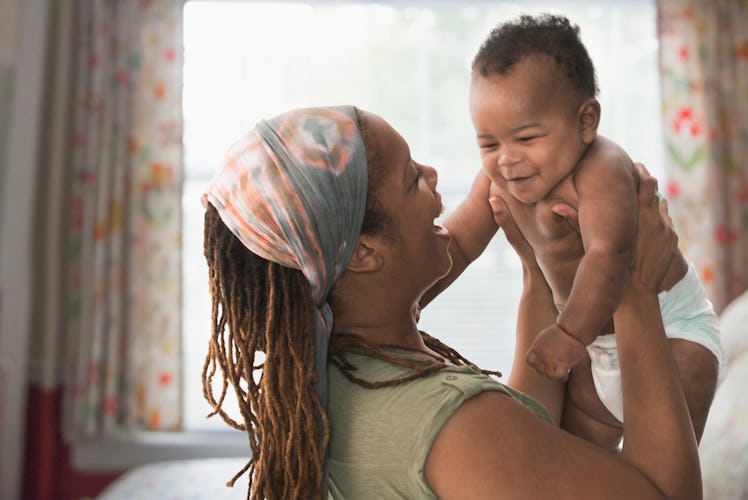Scientists Have Decoded Baby Talk — Turns Out They’re Bossing Parents Around
When babies babble, they’re communicating exactly what they want. Even if they don't know it, parents are listening.

When babies babble, they might be telling their parents exactly how to talk to them. While scientists have understood for some time that baby talk helps infants learn to speak, it seems the student may actually be the master. New research reveals that when babies babble, they could be changing how their parents interact with them to maximize learning potential. They are being bossy babies, but in the best possible way.
“Infants are actually shaping their own learning environments in ways that make learning easier to do,” study co-author Steven Elmlinger, a psychology graduate student at Cornell University at the time, said in a statement.
It is well-documented that when parents use infant-directed speech, otherwise known as baby talk, it facilitates learning. Shorter sentences, simpler words, and slower more enunciated speech at a higher pitch have been proven to help signal to infants that it is time to focus, and this way of speaking lays the foundation for basic language. Although it’s studied much less, the same seems to be true with baby babbling. When babies make non-speech sounds, they are generally more attentive and capable of taking in stimuli. Translation: They’re trying to get a rise out of the world. More often than not, they’re successful.
Research suggests that as infants reach different stages in development and change how they babble, moms and dads change how they baby talk. This could mean that parents aren’t just influencing children, but that children are shaping their parent’s behavior as well.
Other studies indicate that when babies babble at certain objects, parents are more likely to talk about that object. For instance, if a baby starts babbling at a toy cow, mom and dad are probably going to practice saying the word or making cow noises or both. Either way, the kid appears to be learning something that they set in motion.
“We know that parents’ speech influences how infants learn — that makes sense — and that infants’ own motivations also change how they learn,” Elmlinger said. “But what hasn’t been studied is the link between how infants can change the parents, or just change the learning environment as a whole. That’s what we’re trying to do.”
To get a better idea of the purpose of babies babbling, Elmlinger and his team observed 30 infant-mother pairs in a play space for two 30-minute increments, two days in a row. Nine and 10-month-old infant participants were free to roam and play with toys and animal posters, and their speech was recorded with a hidden wireless microphone in their overalls. Mothers had microphones as well, and the sessions were recorded on video. Researchers measured parents’ syntax and vocabulary, as well as changes in how babies babbled from the first to the second day.
Data indicated that when babies babbled, moms tended to respond with less complex words, more single-word sentences, and shorter words all around. The more parents did this, the faster the infants picked up new speech sounds during the second play session.
The results also showed that single-word utterances might have the biggest impact on babies and their ability to learn language, so that may be exactly what they’re asking for with all the babbling. Elmlinger suspects that babbling babies are likely telling mom and dad to do something, and single-world sentences may be it.
The research on how babbling shapes parents behaviors is still relatively preliminary, and it’s important to note that these results are limited by a small sample size and short study time frame. Plus, the researchers did not look at how fathers responded to babbling, and a growing amount of evidence suggests that this is equally important. Overall, the findings need to be replicated with more people who are looked at for a longer period in order to draw any firm conclusions.
Until that happens, the research is not meant to give parents any more anxiety about whether their babies are babbling enough or what it means. But it is a good reminder for moms and dads that if your kid is chatting up a storm, they’re saying a lot more than they get credit for.
“Babbling is a social catalyst for babies to get information from the adults around them,” Elmlinger said. “It’s not meaningless.”
This article was originally published on